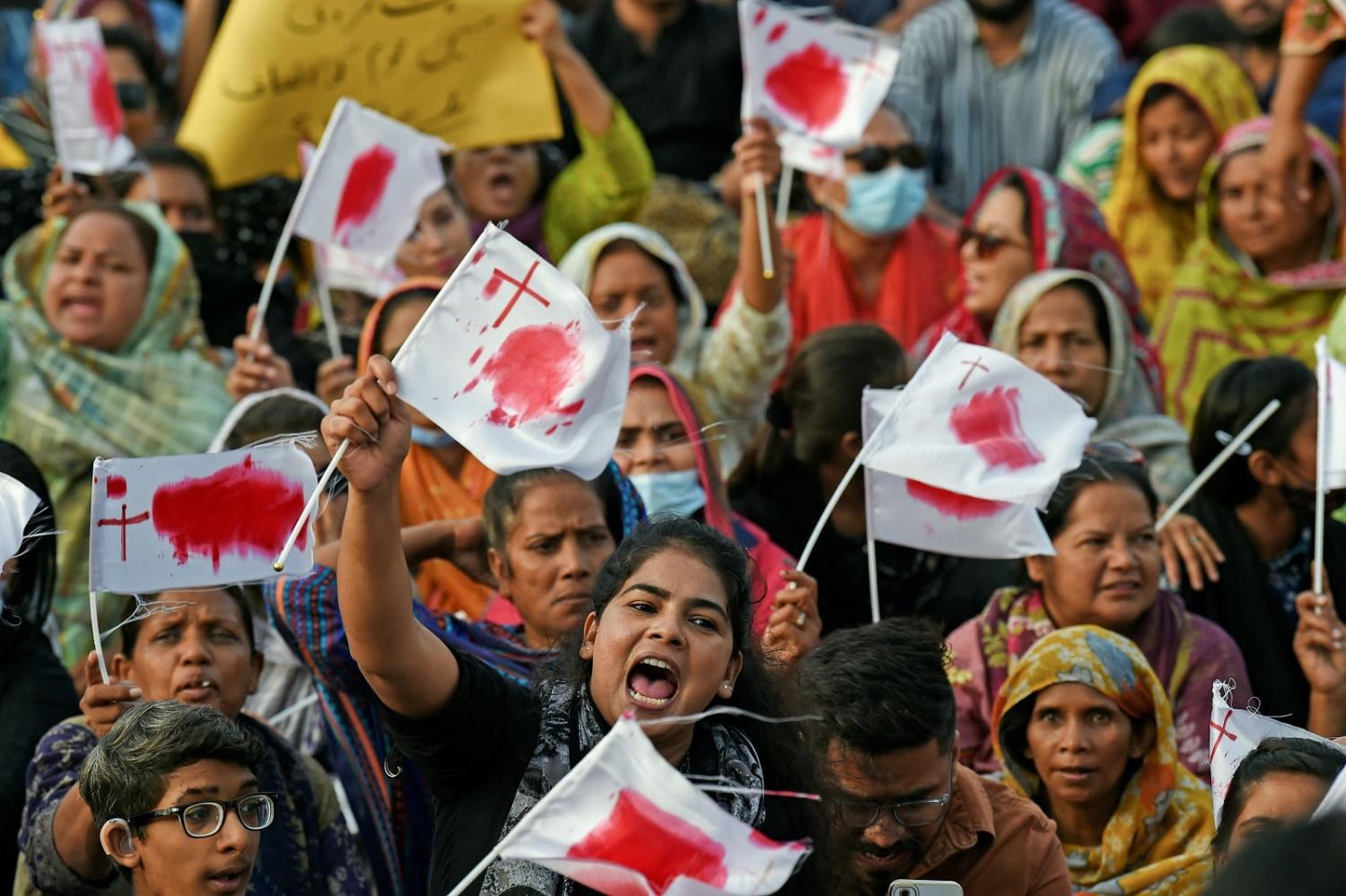Draconian interpretations of Islamabad’s laws violate
human rights and are stoking violent religious extremism.

Published 21 Sep 2023
In Pakistan, an accusation of blasphemy – whether true or false, proven or unproven – has the potential to lead to extreme violence, and in some cases the lynching of the accused by a frenzied mob. Such incidents of vigilante justice reflect how religious extremism has seeped into the country’s body politic and how the state has consistently failed to rein in the vigilante groups unleashing mayhem in the name of religion.
Last month’s incident in Jaranwala was only brought under control after the Punjab government called in paramilitary forces. Eventually, police arrested more than 160 people involved in acts of arson and vandalism against Christians. According to a fact-finding mission by the Human Rights Commission of Pakistan (HRCP), the attacks were part of a larger campaign of hatred against Christians by a number of local political leaders. However, numerous questions remain unanswered. Why did the local authorities not take pre-emptive action against those from local mosques inciting violence against a minority community? Where were police and law enforcement authorities during the hours-long rampage? And why are these state institutions not held accountable?
Blasphemy is a highly sensitive subject in Pakistan where 97 per cent of the population is Muslim. It was British rulers who first introduced blasphemy laws in 1860 to control religious violence. The laws were later amended by military ruler General Ziaul Haq (1977–88). Under the laws, disrespecting Prophet Muhammed or desecrating the Holy Quran are capital offences punishable by death.
The majority of such cases are promptly decided by vigilante groups long before they reach court. And it is not the blasphemy laws themselves but their misuse, as well as mob justice and the state’s failure to trammel extremist groups, that has been the real problem in Pakistan. The 16 August attacks are a tragic addition to a long list of brutal incidents of vigilante justice in the name of blasphemy. Just this year, 198 people have been accused of blasphemy, 85 per cent of them Muslims.
A week before the Jaranwala incident, a teacher was shot dead by armed men over blasphemy allegations in Kech district of Balochistan province. In February 2022, a man was stoned to death by a mob over alleged desecration of the Holy Quran in Khanewal district of Punjab province. In December 2021, a Sri Lankan national was brutally killed over blasphemy allegations by a mob in Sialkot district of Punjab. Factory manager Priyantha Kumara Diyawadana was beaten to death by factory workers, his body then dragged to the road and burnt by the mob.
Investigations into several blasphemy cases have unveiled personal interest, personal vendettas and property disputes between accusers and accused. An example is the 2017 case of Mashal Khan, a university student in Mardan district of Khyber Pakhtunkhwa province who was brutally killed by fellow university students for publishing blasphemous material online. Investigations later revealed that there was no evidence the 23-year-old had committed blasphemy but he had angered university management in the weeks before his murder and the allegation was seen as settling a personal score.
Pakistan is at a crossroads. It has either to become hostage to extremists or to launch a crackdown on extremist groups that continue to crop up under the nose of Pakistani authorities. Recent brutal incidents are the consequence of the state’s policy of tolerating religious groups that exploit the sensitivities of society to garner popular support. Will the 16 August tragedy be a wake-up call for those in Islamabad’s corridors of power?
